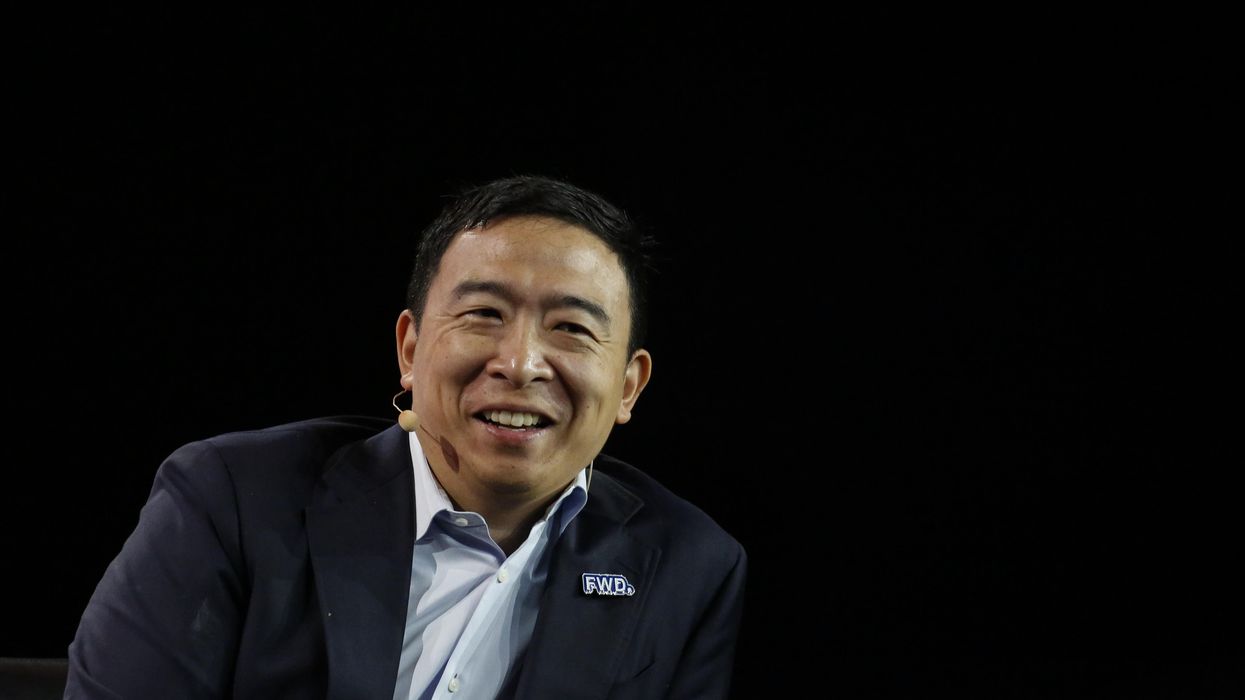The Forward Party, a new political entity led by former presidential candidate Andrew Yang and former New Jersey Gov. Christine Todd Whitman, is planning to announce its first round of election endorsements this week.
While Yang and Whitman would not confirm the list of candidates the party will endorse, Yang did acknowledge it will be weighing in on at least one particular Senate race.
“I will likely be heading to Utah to help Evan McMullin,” Yang said, referring to the Republican turned independent who is challenging the GOP incumbent, Sen. Mike Lee.
The Forward Party’s support for McMullin is not a surprise given that Yang previously announced his personal support for McMullin – and that McMullin founded one of the three organizations that merged to become the new party.
The current iteration of the Forward Party is the result of combining the original version formed by Yang, the Serve America Movement and the Renew America Movement. SAM was created by Republicans, Democrats and independents, and it is led by former Republican Rep. David Jolly. RAM, which started out as Stand Up Republic, was founded by McMullin, a former Republican who ran for president as an independent in 2016, and Miles Taylor, who served in Donald Trump’s administration. Its leadership team includes a number of other former GOP leaders.
According to Yang and Whitman, the Forward Party is going to endorse candidates in federal, state and local races, and the list will include Republicans, Democrats and independents.
The top priority on McMullin’s campaign website covers strengthening democracy and reducing extremism. He has been endorsed by the state Democracy Party, which decided to throw its support to him rather than running a long-shot candidate of their own. Recent polling shows Lee with a 7-point lead.
“Where we see an extreme candidate versus one leaning in our direction, that’s where we put our efforts,” Whitman said, explaining that they are looking for candidates who support two specific proposals to reform the political system: open primaries and ranked-choice voting.
Unlike the Democratic and Republican parties, which usually develop platforms on policy issues (health care, the economy, immigration, etc.), the Forward Party is instead focused on electing “solutions oriented” candidates who support three concepts it has identified as “free people,” “thriving communities” and “vibrant democracy.”
“Tens of millions of Americans want a positive unifying third party movement in the country,” Yang said.
The data backs up Yang’s claim. Last week, Gallup released its last survey on third parties, finding that more than half (56 percent) of Americans believe a third major political party is necessary because the Democratic and Republican parties do a poor job representing the people.
That includes 75 percent of self-described independents, 45 percent of Republicans and 40 percent of Democrats.
“We have dozens of conversations with people of both parties who are fed up,” Yang said. “Many are in conversations with us to join or work together.”
Since announcing the formation of the party in July, Whitman, Yang and the other leaders have relied on a grassroots effort to build support.
So far, the Forward Party has enlisted 25,000 activists across all 50 states, and “10 times that number” on the party’s mailing list or engaged in some other way, according to Yang.
Whitman believes that early growth, coupled with media coverage and events, has generated momentum that could accelerate with this week’s endorsements.
“Once we show them we’re real and the commitment we have and the spread we have, people will come to it,” she said, stressing that a small number can make a big difference. “But remember, we don’t have to get them all. You can make change .. with just 5 percent or 7 percent” of the electorate.
(Joe Biden won the popular vote in 2020 by less than 5 percentage points. Hillary Clinton won the popular vote in 2016 by 2 points.)
In addition to engaging in the midterm elections and growing the party base, Forward leaders are continuing the work necessary to qualify for ballots around the country. Their goal is to be on the ballot in 15 states by the end of this year, double that by the end of 2023 and in every state by 2024. They intend to hold a national convention next summer.
“This sort of movement cannot succeed without thousands of us and eventually millions of us who want something better for our country than we can get with a dysfunctional two-party system that represents fewer people each passing day,” Yang said.
But they realize it’s going to take time to build the party.
“This isn’t going to happen overnight,” Whitman said. “But we’re committed to it.”




















Trump & Hegseth gave Mark Kelly a huge 2028 gift